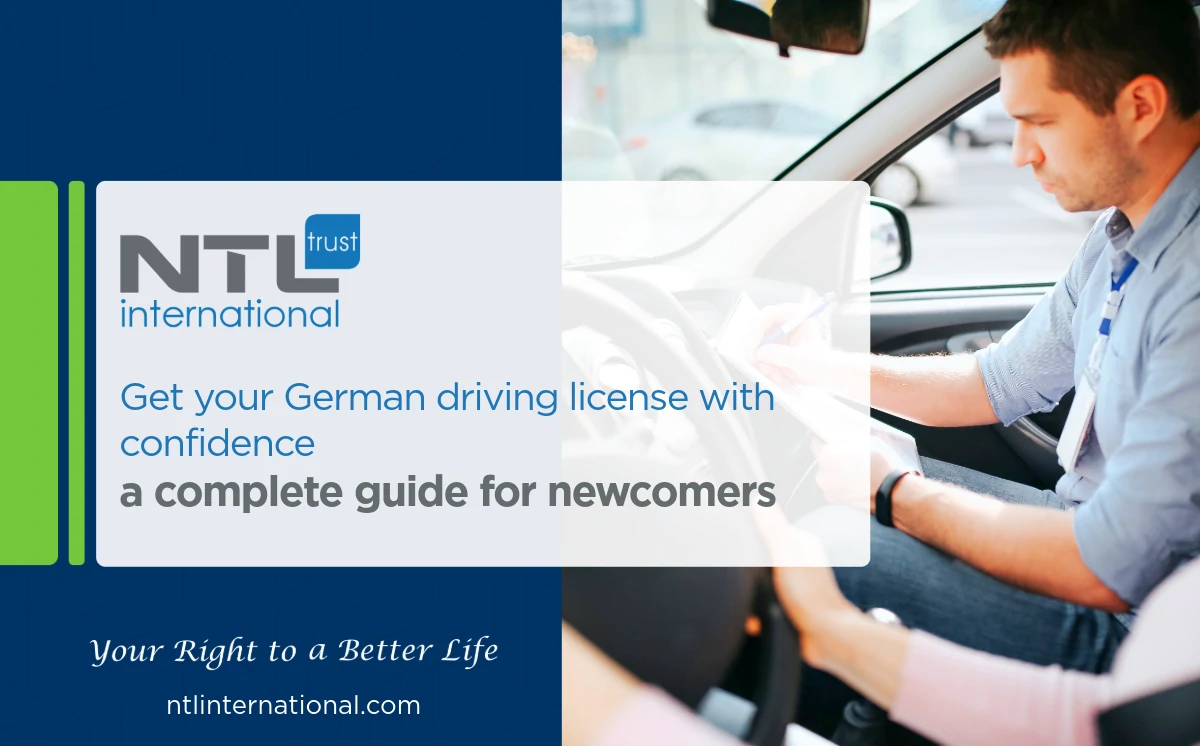
After discussing life and work in Germany Part-1, of our Germany Guide series, Part 2 focuses on one of the essentials for residents: obtaining a German driving license. For anyone planning to reside in Germany, having a valid license is crucial for mobility and independence.
Exam Preparation:
To receive a German driving license, applicants must pass both a theoretical and a practical exam.
Theoretical exam:
The test is available in multiple languages, including Arabic, making it accessible to newcomers. It contains around 1,300 questions that candidates must study carefully, supported by videos simulating real traffic situations.
Practical exam preparation:
Since 2021, applicants are required to train on both manual and automatic cars, not just one type. Training includes driving in different weather conditions such as rain and snow, during the day and at night, on highways, city roads, and even mountainous terrain when applicable. There is no fixed number of lessons; readiness depends entirely on the instructor’s assessment. While some candidates may be ready after just five lessons, others may need ten or more before being considered prepared for the test.
German driving license Test:
The theoretical test lasts 45 minutes and includes 30 multiple-choice questions, with failure resulting from 10 or more mistakes.
During the practical exam, your instructor and the official examiner will both be present. The examiner sits in the back seat, observing your driving behaviour and decision-making. Importantly, the test is conducted only in German.
Unlike in some countries, the German driving test takes place on real city streets rather than a closed track. Following the examiner’s instructions is mandatory. If performance is unsatisfactory, the examiner will call “stop,” and your instructor will take over, returning the car to the test centre. Passing candidates receive an official certificate immediately.
Applicants who have never held a license elsewhere must first attend a driving school, completing 14 days of mandatory theoretical lessons before following the same testing procedures.
Finally, the German driving license:

Once you receive your pass certificate, it must be submitted to the Traffic Directorate along with your previous license (if applicable) and driving school documents. Your German driving license will then be issued.
The first two years are considered a probation period, during which serious violations may lead to license withdrawal and retesting. Currently, the German license is valid for 15 years—unlike in the past when it was issued for life.
Costs vary depending on the number of practical lessons required, typically ranging from €750 to €3,000.
For young drivers: Applicants aged 16–18 can apply for a special license, provided they drive only when accompanied by a person who has held a valid license for at least three years.
The German driving license is ranked among the strongest in Europe and worldwide, making it a valuable and highly respected document.
If you are a fan of culture & history and are interested in studying and education in Germany, look forward to the next article in Germany Guide.
To be continued ..
Top Citizenship by investment Programs in 2026
Top Citizenship by Investment Programs in 2026 | NTL International src="https://ntlinternational.com/wp-content/uploads/2026/02/ntl_top10_cbi__map.webp" alt="World map showing the top citizenship by investment programs ranked by application volume 2026, NTL...





